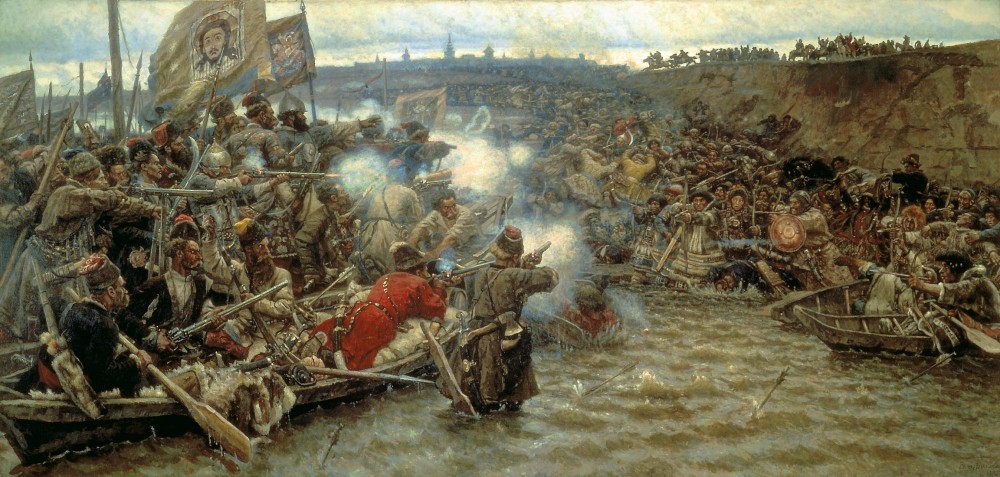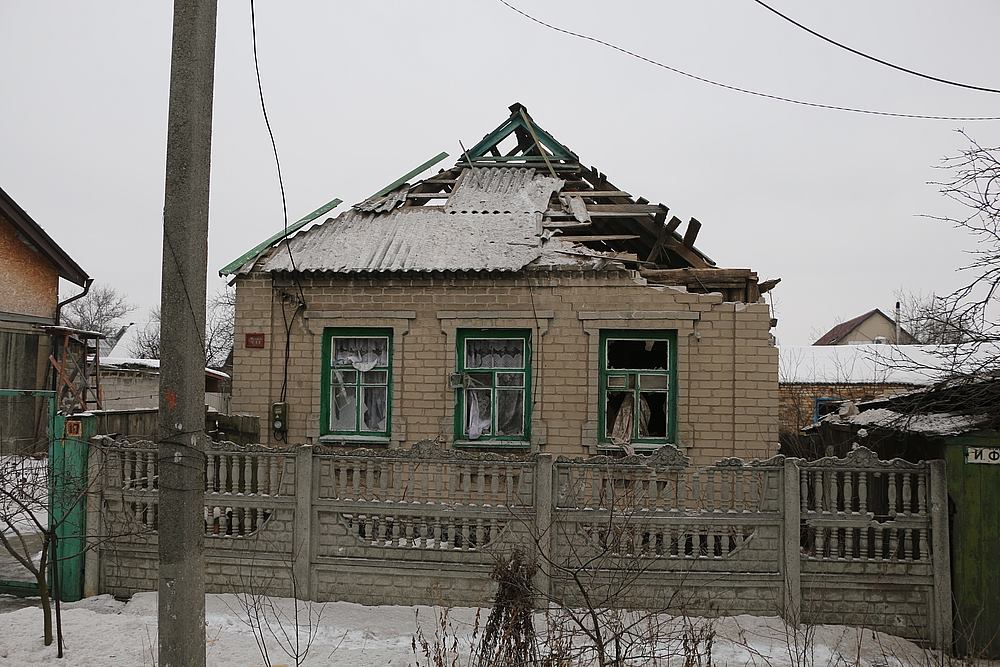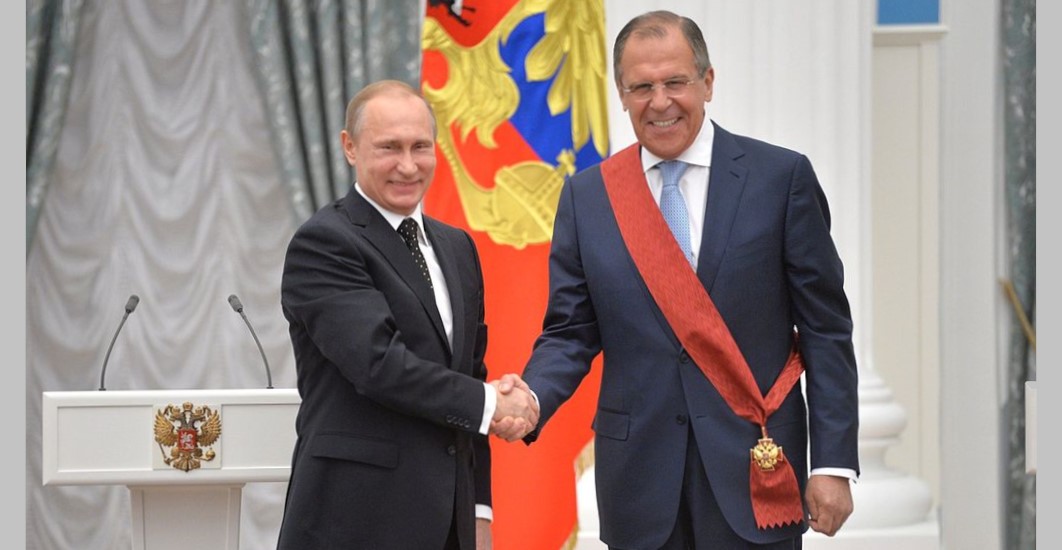Putinism represents a new threat to the world, one very different in fundamental ways from those of earlier imperial dictatorships, Igor Yakovenko says; and the greatest danger today is that many people are refusing to recognize how “new” it is and are dealing with it as if it were a revival of something that existed earlier.
“Generals,” the Russian commentator writes, “always prepare to fight the last war. And today, being confronted by Putinism, the world is trying to evaluate this threat in terms drawn from the past. But “not one of these terms is suitable for the description of the Putin regime” without significant modifications.
Puitin’s Russia is indeed both an empire and a fascist state, but in each case, Yakovenko argues, it is fundamentally different and more dangerous than others in those categories – and the world must take note of those differences if it is to be effective in countering the spread of Putinism within and beyond Russia’s current borders.
Russia today is “the last existing empire,” and “an imperial type of consciousness corresponds to this type of state. And even when the empire is dying, this imperial consciousness continues to live in the heads of certain politicians and part of the population, sometimes in the heads of the majority.”
Putin’s rise to power, Yakovenko argues, “is a clear example of an attempt at imperial ‘life after death,‘” given that “from talk about the disintegration of the USSR as the greatest geopolitical catastrophe of the 20th century to attempts at restoring the empire is but a single step” – and Putin took that step in Crimea and the Donbas.
But “Putinism is distinguished from previous historical forms of the Russian Empire by the fact that in place of internal colonization, there has come internal occupation.” Moscow no longer offers the regions and republics any positive model of change as the Soviets claimed to do. Instead, it simply occupies and exploits them.
The Kremlin today, Yakovenko says, needs only one thing from the population: “submission and quiet. And it would be better for it if instead of 140 million [people] there remained only ten million for servicing the pipelines. This isn’t colonization,” as many are inclined to think. This is internal “occupation.”
Equally important differences set Putinism fascism apart from the fascisms of the past. In one way or another, the analyst says, the Putin regime manifests all 14 signs of fascism that Umberto Eco famously listed in 1995.
But in nine cases, it is fundamentally different; and those differences need to be recognized:
- First, it is “fascism without an ideology and consequently without propaganda.” Those institutions many call propaganda outlets are in fact instruments of information war rather than the spread of propaganda. They spread only feelings and emotions, not ideas.
- Second, unlike fascist states in the past, the Putinist variant is parasitic on the West and cannot be otherwise.
- Third, it isn’t trying to conquer the world, only to disorder it so that the Putinist elites can continue to steal and enrich themselves. If they took over the West, they’d have fewer opportunities to steal.
- Fourth, lying is the foundation of Putinism, a substitute for the power it does not otherwise have.
- Fifth, the Putin elite “lives by rules that are directly opposed to those which it declares as the norm for the population.” It promotes hatred of the Western countries where it keeps its money and its children.
- Sixth, in the absence of ideology, the Putinist elite focuses on its own “unlimited enrichment by means of total corruption,” something that undermines the elite.
- Seventh, “Putinism is fascism with nuclear weapons,” the only fascist regime ever with the capacity to destroy the world.
- Eighth, “Putinism is Orthodox fascism,” focused on using the church as an ideology and having a church more devoted to its leaders than was any religion in any other fascist state in history.
- And ninth, Putin’s system is “Chekist fascism,” where the security services have absolute power.
According to Yakovenko, Putinism is the last stage of the Russian empire, one that is fated to die because fascism ultimately defeats itself by manifesting the worst rather than the best of the people under its control and because it seeks certainty in a world that by its nature cannot have everything fixed once and for all.
Putin himself accelerated this process of self-destruction by three acts. He destroyed the social contract with the population by his pension reform. He undermined the loyalty of his elites by showing them that loyalty isn’t enough and turning more often to fear. And he wrecked the accord with the West by showing he won’t live by the international rules of the game.
The demise of Putinism is “objectively inevitable,” Yakovenko says; but this doesn’t mean that it will happen “automatically” or soon “without all kinds of efforts by the leading countries of the world and the Russians themselves.” The basis for such actions, he concludes, is an adequate understanding of the nature of the enemy.
Further Reading:
- Like Hitler, Putin told the West in advance what he’d do – and the West ignored him
- Putinism – a greater threat to humanity than anything the West has faced before, Yakovenko says
- The propaganda schemes of TrumpPutinism
- Putinism isn’t the Brezhnevism of today: it’s far more dangerous and vigorous, Pavlova says
- Putinism – a greater threat to the West than Soviet communism was
- Putinism represents triumph of ‘feudal traditionalist reaction,’ Skobov says
- The globalization of Putinism
- Putinism’s Godfather: Primakov laid groundwork for Putin in Russia
- Putinism – not nearly as strong as it appears





